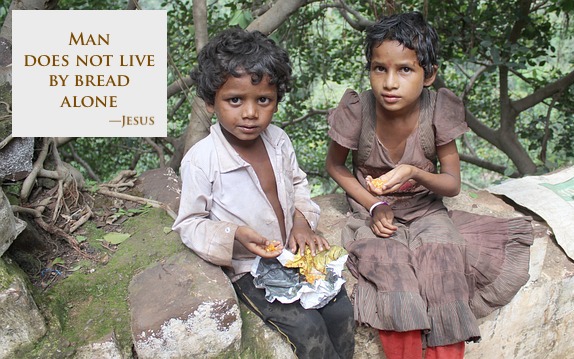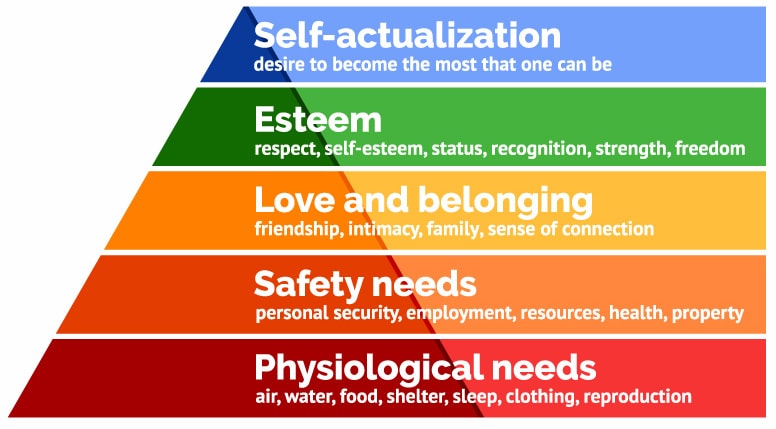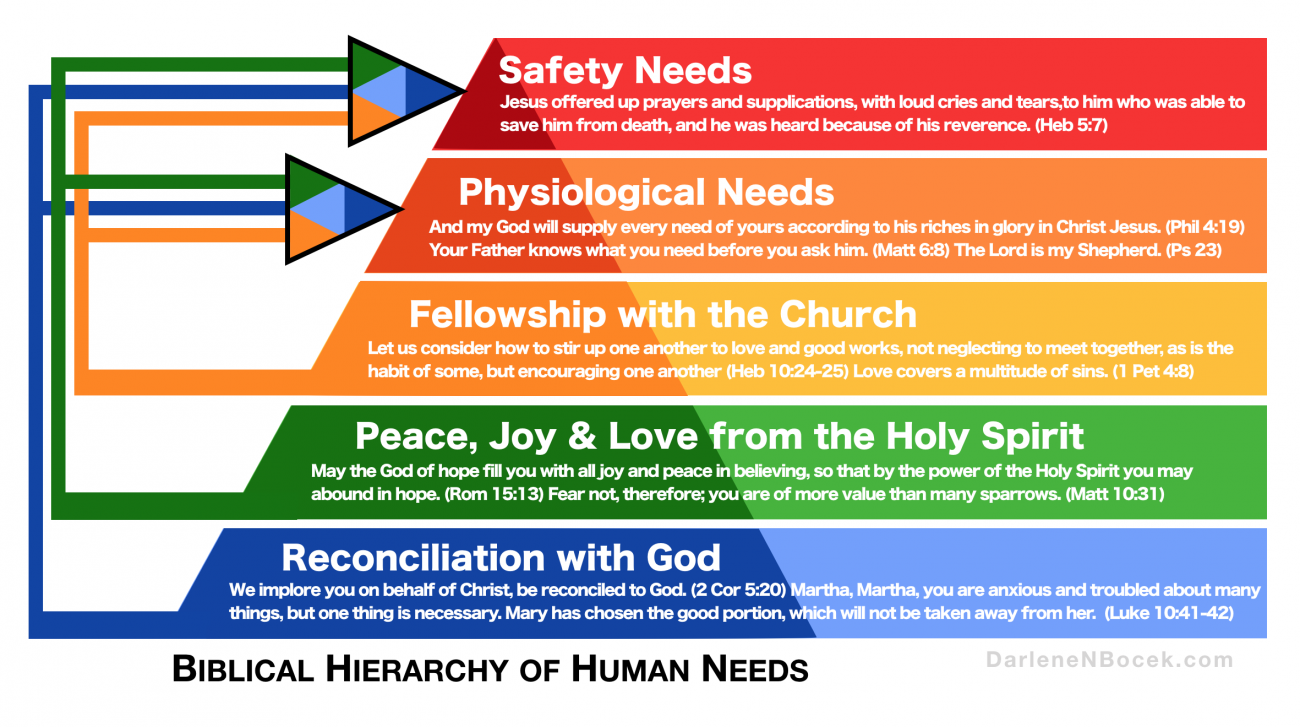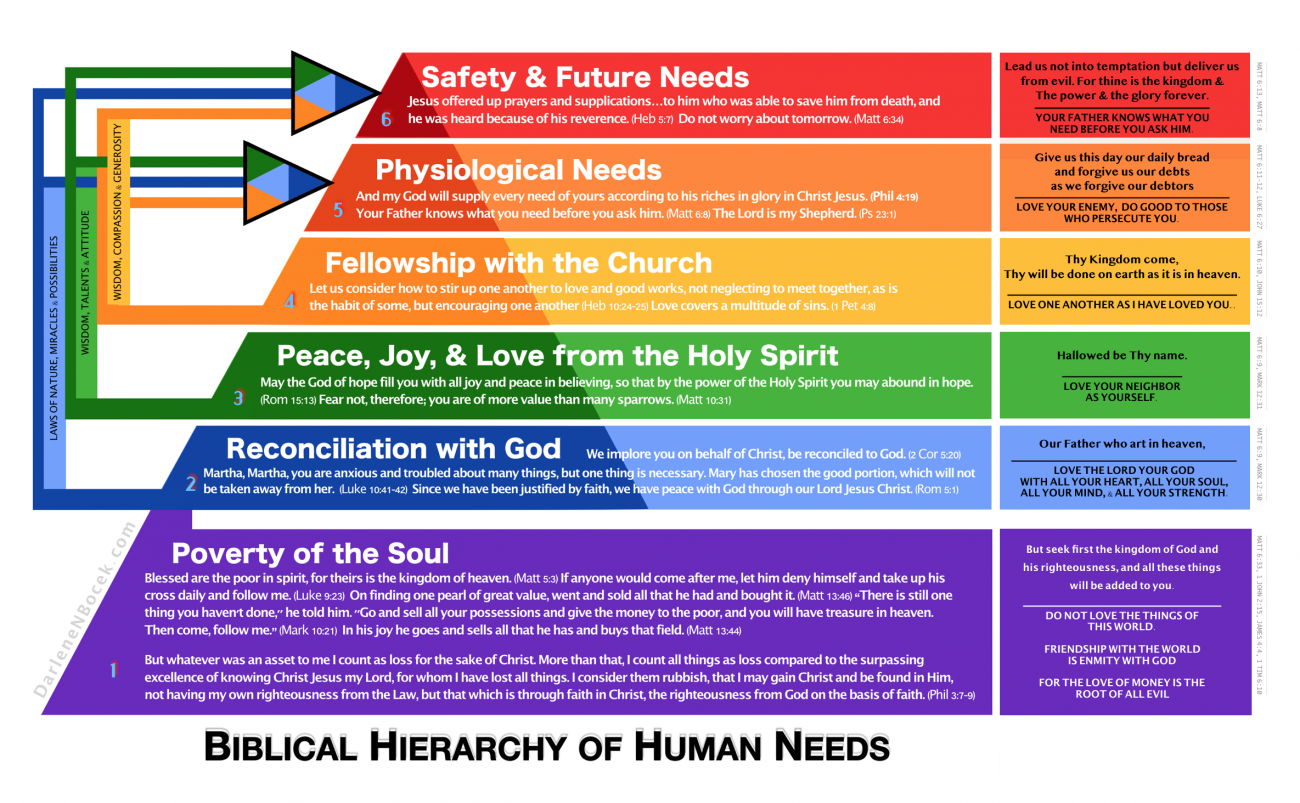
Abraham Maslow’s hierarchy is taken as “common sense” to many people who see it. His famous pyramid prioritizes man’s needs. Physiological needs stabilize the base and are the primary requirement of man. Moving up in lessening urgency we see other “good to have” needs until finally, at the top after all other needs are met, man is ready to have some sort of spiritual or “self-actualization” experience.

As we know, the masses can sometimes be wrong. Just because something “seems” right doesn’t actually mean it is right. History shows us that the masses have been gravely mistaken in serious and critical issues. To believe just because everyone else does is called the Ad Populum fallacy. Dangerous waters. What we should be founding our life on is Unchangeable Facts.
In MASLOW’S HIERARCHY: HOW THE “HOUSE OF CARDS” CRUMBLES, a critically, biblically, and philosophically based examination of Maslow’s moral system, the author writes:

As Van Til asks, “how can modern psychology tell us of the needs of the human being unless it ask of Christ and God what these needs may be?”
Paul’s letters speak to Christians of contentment with little support from the outside world (1 Timothy 6:6-10; Philippians 4:11). Man’s spiritual, or “higher” needs (to borrow Maslow’s term), are described in Scripture in terms of God’s Word and reconciliation with Him.
When Jesus spoke to Martha and told her that only one thing, His Word, was truly needed (Luke 10:41-42), he turned Maslow’s pyramid on its apex. (source)
Van Til wisely warns us that we should be asking God (not man) what the hierarchy of human needs is.
Maslow wrote: “It is quite true that man lives by bread alone — when there is no bread.” His words directly contradict what the Son of God said about how we will live: “Man shall not live by bread alone but by every word that proceeds from the mouth of God” (Matt 4:4, Deut 8:3). Christ was not saying food was not important for life. He acknowledged it with the word “alone.” But he shows here and in many other verses that man’s priority must not be physiological needs.
We see time and again how people can stay alive with hope, and when they lose their hope –even with food–they die.

Based on the “upside down” world we learn about in Scripture, I’ve put together the Biblical priorities Christ taught us. As we pursue being found in Christ (purple then blue below) we are strengthened, built-up and matured in the Holy Spirit (green), and empowered to function in this world.
Out of this relationship with God, we fellowship with the church (orange), from which we are stabilized in body, soul and spirit. All four (purple, blue, green & orange) helped us to function in our gifts and talents, prodded by wisdom and ideas, with the industrious attitude of a good steward.
As we have difficulties, God’s laws, the Spirit’s work, and the Church’s compassion enables us to survive and thrive. Compassion is a huge element in the formula. And being a known member in a fellowship of Christ naturally fosters that compassion. Likewise, the compassion of Christ motivates the church to meet the spiritual and physical needs of the poor.
I’d love to hear your comments. Please add your thoughts below.

